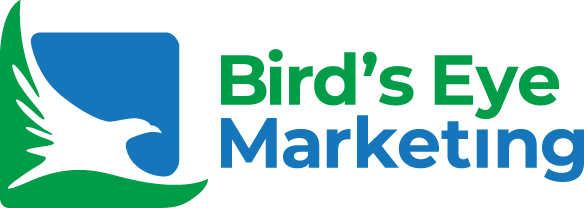Here’s a summary of the new policy requirements and how you can meet them:
Removal of $2.00 Maximum Bid—Go ahead and bid on higher priced words!
In the past, the highest you could bid was $2.00, which shut you out of many opportunities other advertisers were willing to pay more for.
The good news is the $2.00 maximum can be removed, so you can bid on any keyword you think is relevant.
To remove the $2.00 maximum bid, you will need to switch to an automated keyword bidding method called ‘Maximize Conversions’. This is also good news, as ‘Maximize Conversions’ bidding is designed to increase your bids on auctions where conversions are more likely. On auctions where conversions are less likely, your bidding will be less aggressive. Over time, Google’s machine learning will learn when conversions are most likely.
Want even more good news? You don’t need to manage individual bid amounts; AdWords’ automation does that for you. Here’s how:
Set up Conversion Tracking
This is important! Your bidding will not work without it.
Check to see if you have conversions enabled on your AdWords Account; it’s in the Tools section of the top navigation menu. If you don’t, set it up.
5% Minimum CTR
The CTR (Click Through Rate) is the percentage of people who click on your ads. The percentage is determined by two numbers: Impressions – the number of people who see your ad, and Clicks—the number of people who click on your ads.
The new policy requires a minimum 5% CTR or your account is at risk of being suspended. This sounds scary, but it’s really not. If your CTR is below the 5% threshold, the easiest way to increase it is to remove keywords with high impressions and low clicks.
- Quality score greater than 2
- 2 ad group minimum with 2 ads each
- 2 sitelink minimum
Let’s take a closer look at each:
Keyword Quality Score Must Be 2 or Greater
This is just a good AdWords practice; anytime you have a quality score less than 6 you should be taking action anyway.
Quality Score is Google’s opinion of how relevant your selected keyword is to the ad and landing page. It’s always a good idea to make sure those three are relevant to one another.
Minimum Two Ad Groups per Campaign and Two Ads per Ad Group
This is just another good AdWords practice that ‘ups our relevance,’ which improves Quality Score and keeps our Click Through Rate (CTR) above the 5% threshold:
- Two Ad Groups forces us to improve our relevance instead of just stuffing everything into one.
- Two Ads forces us to test messages and see which one gets the better reaction (clicks, conversions, etc.)
Use at Least Two Site Links
This is awesome. You should be using more than two anyway. Site links let you showcase important parts of your website at no extra cost.
In fact, site links are just one form of Extensions offered by AdWords; there are many more that help make your ads more visible, and increase that CTR and relevance, including:
- Call extensions that show your phone number right in your ad;
- Location extensions that show your address, hours of operation and much more; and
- Call out extensions that show additional marketing messages.
To set up your extensions, click on the extensions tab and you will get this wonderful feature working for you.
- Don’t bid on branded terms unless you own them
- Stop using single keywords
- Stop targeting “the world”
You Can’t Bid on Branded Keywords You Don’t Own
If you have branded keywords you own, feel free to bid on them and be active in AdWords. However, you will not be able to bid on keywords you do not own, i.e.; competitor names.
Many Single Keywords Not Allowed
Most people’s searches involve more than one word anyway, so disallowing most single word keywords is not that big a deal. You’ll need to look through all your keywords and find those lonely singles, like donate, donation, NGO, charity, non-profit and several more. Either get rid of them or combine them with other words into phrases.
Stop Targeting the World
When it comes to geographic targeting “the world” is the default. Google Grants now requires you to target your geography… which makes sense anyway.
For each of your campaigns go into location settings and check that Canada / a province or a city is targeted. Target the area(s) relevant to your NPOs mission.
These changes will require you spend a fair bit more time on your AdWords account maintenance. Let it languish, and you can expect a note from Google Grants suspending your account.
Don’t Let ‘Moss Grow on Your Account’
Until now, managing Google AdWords might have been a ‘set and forget’ task. These new policies mean you will need to pay attention to your account, because if it languishes and goes below the thresholds set out, your account can be suspended.
These policies also probably mean you need to become more knowledgeable about AdWords and managing your account. Google offers some great training at their Academy for Ads. Take the AdWords Basics and AdWords Search training courses to learn more about optimizing and structuring your account better.
Time Needed to Manage Your Account
If you are managing your AdWords account in-house, make sure the person caring for your AdWords account has training time, and most importantly, about 60 minutes a week to regularly work on the account.
Need AdWords Help
Bird’s Eye Marketing is certified with Google AdWords so we can help review your account and help get you meeting the new requirements.
References
From the Google Grants Policy pages: https://support.google.com/grants/topic/3500093?hl=en&ref_topic=3500091,3500123,3540513,
Other References:
https://searchengineland.com/google-grants-policy-changes-5-percent-click-through-rate-288452
https://www.wordstream.com/blog/ws/2017/12/18/google-ad-grants-policy-changes




